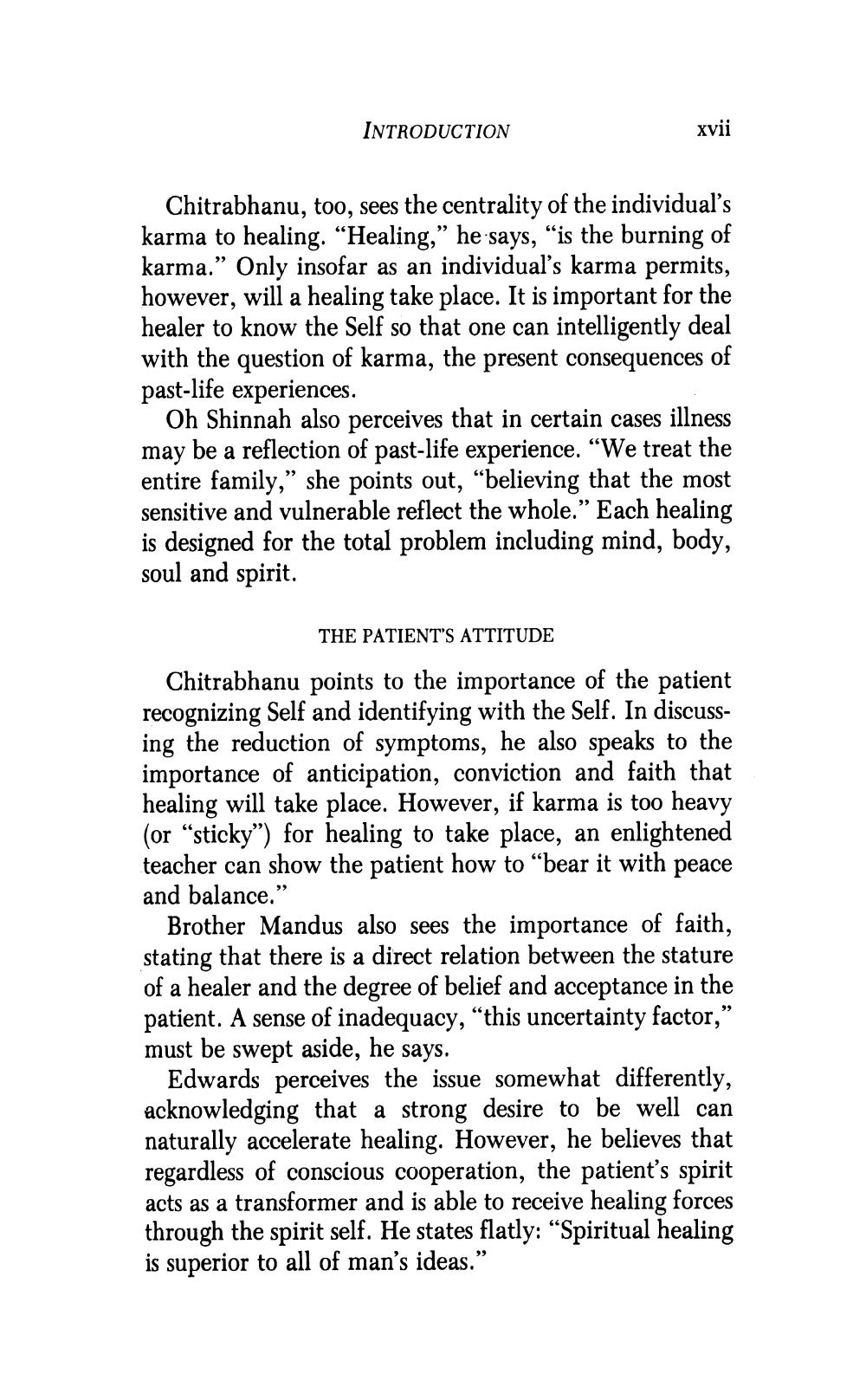________________
INTRODUCTION
xvii
Chitrabhanu, too, sees the centrality of the individuals karma to healing. “Healing,” he says, “is the burning of karma.” Only insofar as an individual's karma permits, however, will a healing take place. It is important for the healer to know the Self so that one can intelligently deal with the question of karma, the present consequences of past-life experiences.
Oh Shinnah also perceives that in certain cases illness may be a reflection of past-life experience. “We treat the entire family,” she points out, “believing that the most sensitive and vulnerable reflect the whole.” Each healing is designed for the total problem including mind, body, soul and spirit.
THE PATIENT'S ATTITUDE
Chitrabhanu points to the importance of the patient recognizing Self and identifying with the Self. In discussing the reduction of symptoms, he also speaks to the importance of anticipation, conviction and faith that healing will take place. However, if karma is too heavy (or “sticky”) for healing to take place, an enlightened teacher can show the patient how to “bear it with peace and balance.”
Brother Mandus also sees the importance of faith, stating that there is a direct relation between the stature of a healer and the degree of belief and acceptance in the patient. A sense of inadequacy, “this uncertainty factor,” must be swept aside, he says.
Edwards perceives the issue somewhat differently, acknowledging that a strong desire to be well can naturally accelerate healing. However, he believes that regardless of conscious cooperation, the patient's spirit acts as a transformer and is able to receive healing forces through the spirit self. He states flatly: “Spiritual healing is superior to all of man's ideas."




